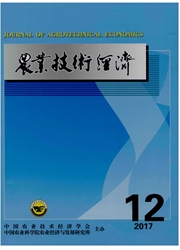

 中文摘要:
中文摘要:
本文在经济合作与发展细织金融素养测评框架(PISA)的基础上,结合金融素养测评的三大经典维度、中国农村金融和农村居民的实际特点,从基本金融知识认知、金融知识理解和应用、风险和回报、金融规划等6个方面,构建了专门针对中国农村居民的金融素养测评框架,并利用湖北和河南两省的调查教据进行了实际测评,分析了金融素养的影响因素。结果显示:总体来看,农村居民金融素养水平较低,这一结论与国际主流观点相符,且在上述6个方面的得分差异较大;受教育程度、非农程度和风险偏好程度越高,农村居民的金融素养水平越高;男性、参加过学校金融教育或社会金融培训和50~59岁的农村居民的金融素养水平较高;父母是文盲的农村居民的金融素养水平较低;家庭年人均收入水平对个人金融素养没有显著影响。
 英文摘要:
英文摘要:
Based on the OECD's financial framework (PISA), the three classic dimensions of financial literacy assessment and the characteristics of China's rural finance and residents, this article consrructs a rural residents' financial literacy measurement framework from six perspectives, such as basic financial knowledge, understanding and application of financial knowledge, risk and reward, as well as financial planning. The study measures China's rural residents' financial literacy level and analyzes its determinants, using provincial data from Hubei and Henan. The results show a low level of rural residents' financial literacy, which is consistent with the international mainstream view. Moreover, the findings also suggest great differences in the six aspects of financial literacy among rural residents: the higher the education level, the higher the non-agricultural degree and the higher the degree of risk preference, the higher financial literacy of rural residents. Besides, the financial literacy level is found to be generally higher among males, among those who have received financial education, and among those at age 50s. To the contrary, for the respondents whose parents are illiterate, their level of financial literacy is found to be relatively lower. Finally, per capita household income has no significant effect on financial literacy level.
 同期刊论文项目
同期刊论文项目
 同项目期刊论文
同项目期刊论文
 期刊信息
期刊信息
